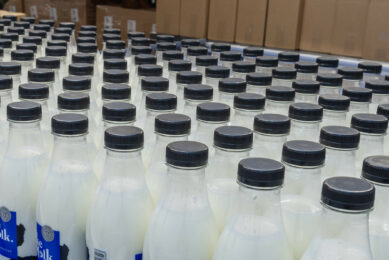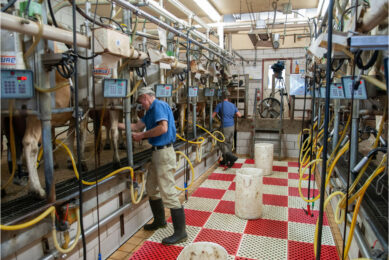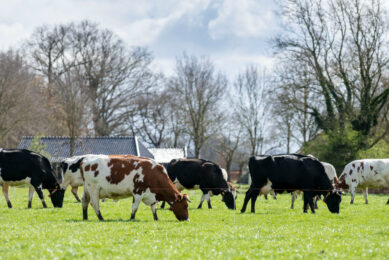Fonterra: Milk prices will fall significantly

New Zealand dairy giant Fonterra announced it expects milk prices could fall to US $3.28 per kilogramme of milk solids next season for New Zealand farmers. Prices are softening across the board, the co-operative group says. It has set an opening range for the year 2020-2021 of US $3.28 to US $4.19.
For the current season 2019-2020 Fonterra has narrowed its forecast farmgate milk price range to US $4.32-US $4.44 per kilogramme of milk solids. This will see the co-op contribute about US $6.7 billion to the New Zealand economy through milk price for the year.
“It is not clear what impact government interventions in the EU and US will have on curbing their milk supply,” said Fonterra chairman John Monaghan. “However, we expect our competitors there to put more of their milk into the product types that determine our milk price.”
Monaghan emphasised that Global Dairy Trade prices for Whole Milk Powder are down 17% since late January. “Looking out to next season, a global recession will continue to reduce consumers’ purchasing power,” he explained.
Monaghan said that COVID-19 adds significant uncertainty into the process of forecasting what will happen with global dairy prices over the next 15 months. That explains the wide range in the 2020-2021 forecast Farmgate Milk Price.
Despite COVID-19 challenges, the co-operative’s total group normalised Earnings Before Interest and Tax (EBIT) for the nine months to 30 April is US $495 million, an increase of US $183 million on this time last year.
Global market – careful approach
Chris Lewis, spokesperson of Federated Farmers in New Zealand told RNZ Morning Report that next year’s farmer forecast will require careful planning from all stakeholders. “The realisation is that next season we will have to tighten our belts,” he said. “We’ll have to be careful where we spend our money and that spells a little bit of trouble for our rural towns.”
Rabobank has recently also forecasted a lower milk price for the new season for Australian dairy farmers. Analyst Michael Harvey said a price of US $3.73 a kilogramme of milk solids is to be expected. Farmers had hopes of returns higher than US $4.58 a kilogramme.
Harvey warned a more cautious approach to southern export milk prices is necessary, particularly considering a global market down cycle similar to that of the global financial crisis is now very plausible.
“Around the world, in major dairy markets, demand will inevitably fall as unemployment rises and discretionary spending slows,” Harvey said. Under the worst-case scenario, demand would significantly weaken, inventories would build up across supply chains, and dairy commodity prices, particularly in Europe, could fall a further 10 to 15% from April 2020 levels.
The Australian milk pool is expected to close out the 2019-2020 season at 8.4 billion litres, a 4.9% drop on the previous year. A Rabobank report predicts strong growth in 2020-2021 however, pending seasonal conditions, with a 4.3% lift in national milk production forecast.
Call to increase payments
Australian minister of Agriculture David Littleproud has called for supermarkets down under to increase payments to dairy farmers. Littleproud asked supermarket brands Aldi, Coles and Woolworths to extend their current 10 cents a litre temporary levy on fresh milk, now still linked to drought. He pointed out that nearly 500 Australian dairy farmers left the industry in 2019 with the cost of production remaining above the retail price.
According to Rabobank’s global dairy strategist Mary Ledman the magnitude and duration of the impact of the current crisis on dairy markets varies by country, product mix, and level of foodservice and export dependence.
In the US, a contraction of 3% to 7% in milk deliveries is warranted in the second half of 2020, in order to restore balance to supply and demand, says Ledman. “Covid-19 has consumers returning to dairy basics, and it is reversing slower growth or negative growth in categories like fluid milk and processed cheese,” Rabobank concludes in a recent report.
Join 13,000+ subscribers
Subscribe to our newsletter to stay updated about all the need-to-know content in the dairy sector, two times a week.












